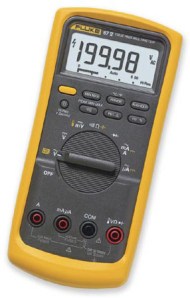As far as entries for The Hackaday Prize go, Moteino is exceptionally interesting. It’s the only project to be used in other projects for The Hackaday Prize. The two other projects making use of the Moteino, 433MHz transceiver and Plant Friends didn’t make the cut, but [Felix]’s Moteino did.
Like many of the Internet of Things project, Moteino is a radio module and a microcontroller in an extremely convenient package. The radio is a HopeRF RFM69 operating in the 315, 433, 868 and 915MHz ISM bands. The microcontroller is everyone’s favorite – the ATMega328, but [Felix] also has a Mega version with the ATMega1284 on board. Already there are a few great examples of what the Moteino can do, including a mailbox notifier, a sump pump monitor, and a way to Internetify a water meter.
[Felix]’s bio below.
![]()
I am a maker at heart so I would have to say I like creating, improving and fixing things around me. All my life I was trained to solve problems one way or another, either in school or at work. Recently I started LowPowerLab and a lot of my hobby time went into creating and blogging about my vision of a connected smart home and environment. I also like history, apologetics , photography, and other weird stuff. My wife says she likes my “cooking” and I enjoy hacking it together for her :-)
![]()
I am a software developer by day and hardware hacker/maker at night. When I first came to the US, I started Computer Science at ASU, then figured I should try something cooler like Computer Systems since I already knew programming. That’s how I was introduced to hardware systems and architecture and that fueled my new love for electronics and the Moteino driven adventure at LowPowerLab years later.
![]()
In recent years I’ve rediscovered my childhood passion of taking things apart and then somehow improving them. I’m sure this is a resonant theme with most hackers. I used to take all my toys apart and add batteries and small 5V light bulbs hooked with wires to make trains “see in the dark” custom blinking Christmas trees. So one day my dad bought me a communist soldering iron. That’s when I learned how to solder and my love for electronics was kindled. Although I’ve somehow always worked software jobs, after college I discovered the fascinating world of Arduino and my degree allowed me to start doing small jobs for clients. Soldering came back naturally, and I was in love with electronics again, only now I was creating them from scratch! And now that I have a young son, I have someone to pass all this stuff to and I have a feeling he’s going to be my biggest project yet.
![]()
I will nominate a few things because they are good candidates:
- my pen style soldering iron (bought from SF when I first got into Arduino, not the one I had as a kid!)
- my spindle hard drive that I’ve upgraded to a SSD which is eons faster. Which reminds me that I have at least a handful of mechanical hard drives somewhere to go OfficeSpace on. But haven’t we all done that already?
- my previous day job laptop, just thinking of my life using it resurrects the Office Space spirit in me
![]()
Though always learning more, it would have to be Linux
![]()
 The trusty Fluke 87V DMM is one of the best investments I made. And for a tight second place worth mentioning, until I got my own real pick and place I used to pick and place manually using my pick and place tool that I made for the purpose, so that would be a tight second place, mostly because it placed countless thousands of SMD components and qualifies as a bench tool.
The trusty Fluke 87V DMM is one of the best investments I made. And for a tight second place worth mentioning, until I got my own real pick and place I used to pick and place manually using my pick and place tool that I made for the purpose, so that would be a tight second place, mostly because it placed countless thousands of SMD components and qualifies as a bench tool.
![]()
The Atmega328P – for it’s robustness and bitter-sweet set of peripherals that most of us came to be so familiar with after the rise of Arduino. It’s also at the core of most of my projects simply because it can do most things that need some electronic brains.
![]()
By far C/C++ is the epic classic that never died (and never will). Every time you press that button on your microwave oven or touch the display of your car dashboard, likely a C routine is invoked and some pointers passed in and around ;-)
![]()
- Well, finishing the Moteino Framework, which I have a feeling will never be truly finished
- I’d like to start a class in my community/city where I teach kids electronics through example projects like their own mailbox notifier!
- Abolishing political correctness would be an honorable mention
![]()
I had been working on my Moteino Framework of things for some time and I initially didn’t think my project was really well suited for the THP because it’s composed of many elements, not just one particular product or component. One of my good friends (HAD hacker Kenji Larsen) really encouraged me to enter THP and then I met the HAD guys at i3Detroit and Mike also suggested I should really enter since it’s such an open space for all kinds of projects. So I did and somehow I made the semifinals, yay!
Either way, regardless of the THP outcome, the Moteino Framework will continue to be improved and perfected to fulfill my vision of having an alternative open framework of devices for those electronics lovers who like DIY.
![]()
I like to sit and talk (well mostly listen) to old people talk about their life experience. Vets are especially interesting. I always end up leaving the conversation with a pack full of awesome advice and things to learn from. We can read books, go to conferences, watch YouTube to learn new skills and hacking techniques, or make mistakes and then learn from those in our daily making/hacking. But being a better father, husband, person, comes from the realization that I don’t live this life for myself, but to better the lives of those around. And there’s plenty of advice I need on that.
![]()
I was watching several projects that caught my attention. I liked Smart Aquaponics and Reactron Overdrive since I have interests in both topics and they were some of the few projects that I considered being actually truly “connected” (transmitting data through the internet), and also feasible and useful.
![]()
The project is moving forward as it normally would. Each prototyping cycle takes about 2 weeks and since so many things can go wrong it’s hard to come up with significantly more functional prototypes for the next stage. But things are always moving along even if sometimes that means one kick in the butt = two steps forward.
![]()
Thank you HackADay for organizing a great place to share every hacking tip and project there was, is, and ever will be. Happy hacking!















So, is the Moteino FCC certified?
http://en.wikipedia.org/wiki/ISM_band
OK so he doesn’t need a license but, I don’t think you can legally sell this without FCC approval; does it really not cause interference?
You’re talking about FCC Part 15, Class B, right? Technically he can fulfill donations without making a self-declaration of conformance , but he really shouldn’t be selling it. I think as small as he is, it’s a kind of grey area where he probably won’t get into trouble.
Isn’t it technically considered a component rather than a product? In which case I think it is exempt from certification requirements (but I am not American, so I have a limited knowledge of the processes and rules).
very happy for Felix. keep up the good work.
If [Felix] is reading, I hope he might comment on the home control software he is working on. JCW’s HouseMon seems to have bogged down and OpenHab is a big Java monstor not well suited for resource constrained devices.
As a happy customer who has submitted a few pull requests to [Felix], my hat is off to him. He was one of the first guys to get RFM69-based stuff out there, his prices are very reasonable, and he bends over backwards to help people on the LowPowerLab forum. Good to see him advance to the next round.
Sweet.
Projects like this build the base and will be the foundation for an explosion of new projects, products and ideas. Love the lowpower web site and the projects there as well. Very worthwhile spending time there.
This one could be a little “spacey” in my opinion. Good luck!
Although the only warm feeling I get from the thought of when I push a button or drive my car that some “C routine is invoked and some pointers passed in and around” is that one from the pit of my stomach as my stomach acids churn at the thought of some improperly handled pointer.
I have used several Moteinos for wireless sensors, and I have been very happy with their performance and hackability. Great job Felix!